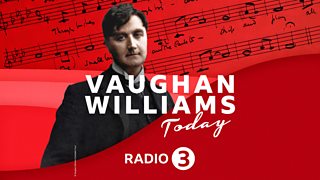
Verdi the outsider, Verdi the legend
Verdi is persuaded to return to the city of Milan, where he is greeted like a hero. Presented by Donald Macleod.
Verdi is persuaded to return to the city of Milan, where he is greeted like a hero. Presented by Donald Macleod.
As the hearse carrying the coffin of the composer Giuseppe Verdi travelled through Milan, more than half of the city’s population lined the streets to pay their respects and catch a final glimpse of their hero. Few musicians have made such an indelible impression on the population of a country, or become so linked to a nation's sense of identity. Fewer still have become as ingrained in the fabric of a city as Verdi is in Milan. Today, as well as a statue to the composer, both the Conservatoire and a major theatre are named after him. So how was this relationship, between the city of Milan and Verdi forged? After all, this was a man born in Le Roncole, which was then French territory, and yet he would rise to become the most successful Italian composer of his generation. Over the course of this week, Donald Macleod explores the twists and turns of Verdi’s relationship with Milan -where Verdi would see his first iconic successes, and where he would breathe his last, but also a city where, for a time, he tried to ban performances of his music.
In Friday’s programme, Verdi is persuaded to return to the city of Milan where he is greeted like a hero. However, he decides he won't live in the city and uses the Grand Hotel, Milan as his base. He oversees a series of late, great masterpieces at La Scala, and is mobbed by fans wherever he goes. Eventually, Verdi buys a plot of land in Milan, not to build his own home in the city but to build a rest home for musicians – the place where he himself would be buried, after dying in the city with which he had had such a turbulent relationship.
Aida – “Gloria all’Egitto, ad Iside”; triumphal march
Chorus of the Royal Opera House, Covent Garden
New Philharmonia Orchestra, Royal Opera Chorus
Riccardo Muti, conductor
La Forza del Destino – “La Vergine degli angeli”
Montserrat Caballe (Leonora), soprano
Royal Philharmonic Orchestra
Ambrosian Singers
Anton Guadagno, conductor
Requiem – Libera Me, Domine
Anja Harteros, soprano
Sonia Ganassi, mezzo-soprano
Rolando Villazon, tenor
René Pape, bass
Orchestra dell’Accademia di Santa Cecilia
Coro dell’Accademia di Santa Cecilia
Antonio Pappano, conductor
Falstaff – Act II Scene II
Bryn Terfel (Falstaff), bass-baritone
Thomas Hampson (Ford), baritone
Adrianne Pieczonka (Alice Ford), soprano
Danill Shtoda (Fenton), tenor
Dorothea Röschmann (Nannetta), soprano
Larissa Diadkova (Mistress Quickly), contralto
Stella Doufexis (Meg Page), mezzo-soprano
Berliner Philharmoniker
Rundfunkchor Berlin
Claudio Abbado, conductor
Otello - “Ave Maria”
Maria Callas (Desdemona), soprano
Paris Conservatoire Orchestra
Nicola Rescigno, conductor
Producer: Sam Phillips
Last on
More episodes
Previous
Next
You are at the last episode
Music Played
-
![]()
Giuseppe Verdi
Aida (Act 2: excerpt)
Choir: Royal Opera House Chorus. Orchestra: New Philharmonia Orchestra. Conductor: Riccardo Muti.- WARNER CLASSICS : 0980152.
- WARNER CLASSICS.
- 22.
-
![]()
Giuseppe Verdi
La Vergine degli angeli (La Forza del Destino, Act 2, Sc 2)
Singer: Montserrat Caballé. Orchestra: Royal Philharmonic Orchestra. Choir: Ambrosian Singers. Conductor: Anton Guadagno.- WARNER CLASSICS : 2648452.
- WARNER CLASSICS.
- 20.
-
![]()
Giuseppe Verdi
Libera Me, Domine (Requiem)
Singer: Anja Harteros. Singer: Sonia Ganassi. Singer: Rolando Villazón. Singer: René Pape. Orchestra: Orchestra of the Academy of Santa Cecilia, Rome. Choir: Chorus of the National Academy of Santa Cecilia. Conductor: Sir Antonio Pappano.- WARNER CLASSICS : 6989362.
- WARNER CLASSICS.
- 18.
-
![]()
Giuseppe Verdi
Falstaff (Act 2, Sc 2)
Singer: Bryn Terfel. Singer: Thomas Hampson. Singer: Adrianne Pieczonka. Singer: Daniil Shtoda. Singer: Dorothea Röschmann. Singer: Larissa Diadkova. Singer: Stella Doufexis. Orchestra: Berliner Philharmoniker. Choir: Berlin Radio Choir. Conductor: Claudio Abbado.- DEUTCHE GRAMMOPHON : 471 1942.
- DEUTCHE GRAMMOPHON.
-
![]()
Giuseppe Verdi
Ave Maria (Otello, Act 4)
Singer: Maria Callas. Orchestra: Paris Conservatoire Orchestra. Conductor: Nicola Rescigno.- Warner Classics 2564633994.
- Warner Classics.
- 14.
Broadcast
- Fri 11 Nov 2022 12:00�鶹Լ�� Radio 3
Vaughan Williams Today
Beethoven Unleashed – the box set
What was really wrong with Beethoven?
Composers A to Z
Who knew? Five eye-opening stories from Composer of the Week
Five reasons why we love Parry's Jerusalem
What is the strange power of Jerusalem which makes strong men weep?
A man out of time – why Parry's music and ideas were at odds with his image...
The composer of Jerusalem was very far from the conservative figure his image suggests.
Composer Help Page
Find resources and contacts for composers from within the classical music industry.






